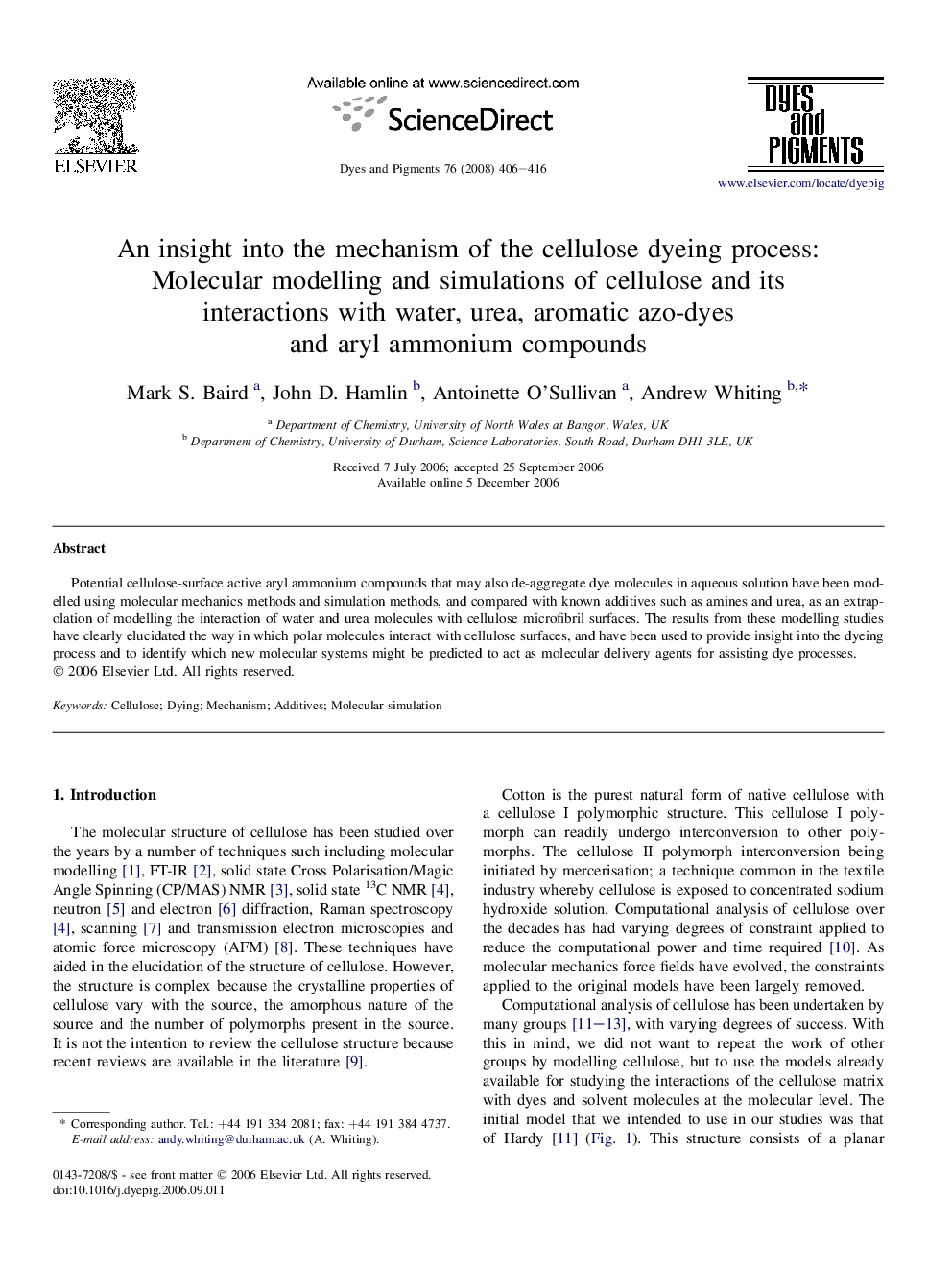| Article ID | Journal | Published Year | Pages | File Type |
|---|---|---|---|---|
| 178296 | Dyes and Pigments | 2008 | 11 Pages |
Abstract
Potential cellulose-surface active aryl ammonium compounds that may also de-aggregate dye molecules in aqueous solution have been modelled using molecular mechanics methods and simulation methods, and compared with known additives such as amines and urea, as an extrapolation of modelling the interaction of water and urea molecules with cellulose microfibril surfaces. The results from these modelling studies have clearly elucidated the way in which polar molecules interact with cellulose surfaces, and have been used to provide insight into the dyeing process and to identify which new molecular systems might be predicted to act as molecular delivery agents for assisting dye processes.
Related Topics
Physical Sciences and Engineering
Chemical Engineering
Chemical Engineering (General)
Authors
Mark S. Baird, John D. Hamlin, Antoinette O'Sullivan, Andrew Whiting,
